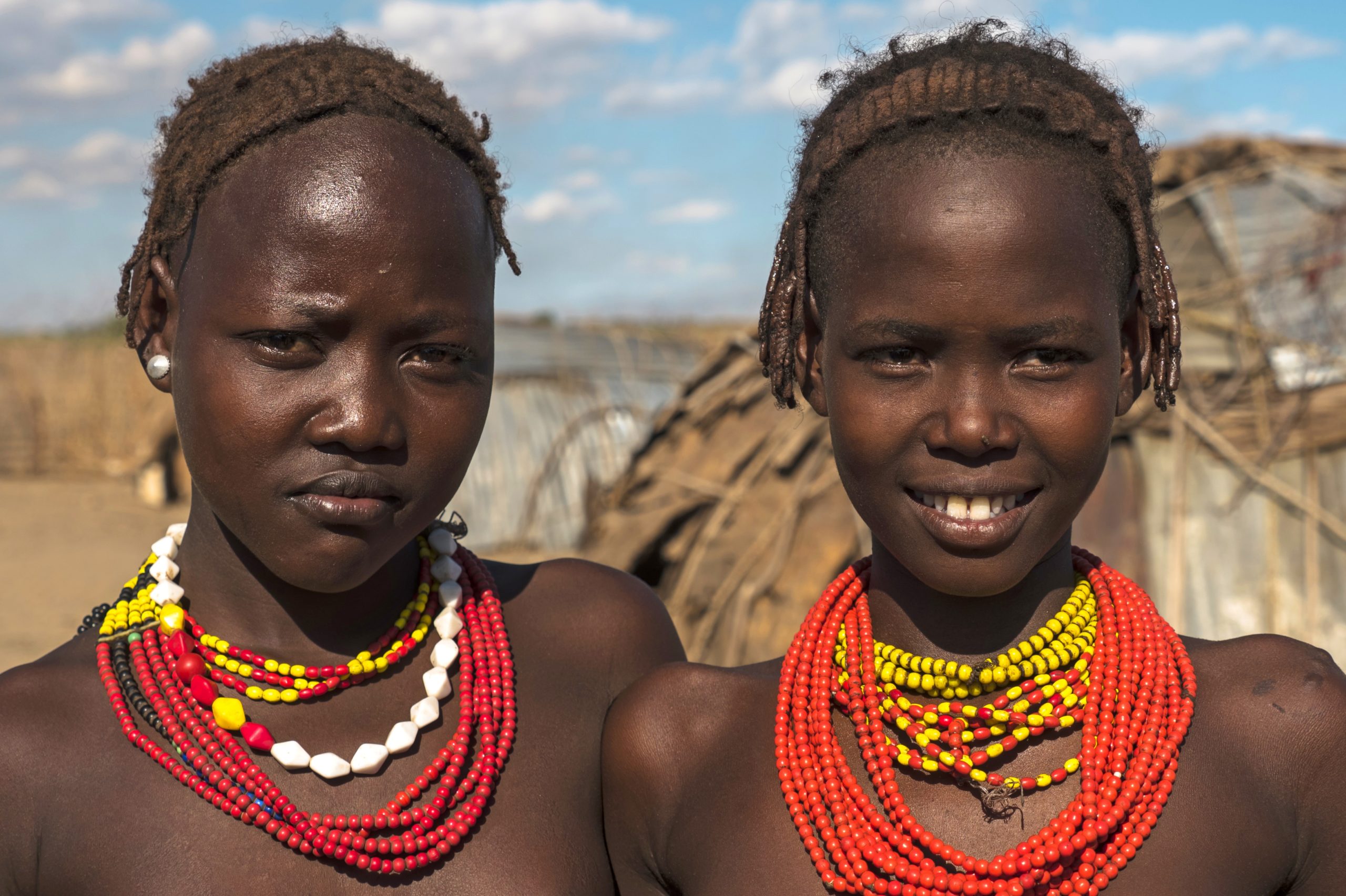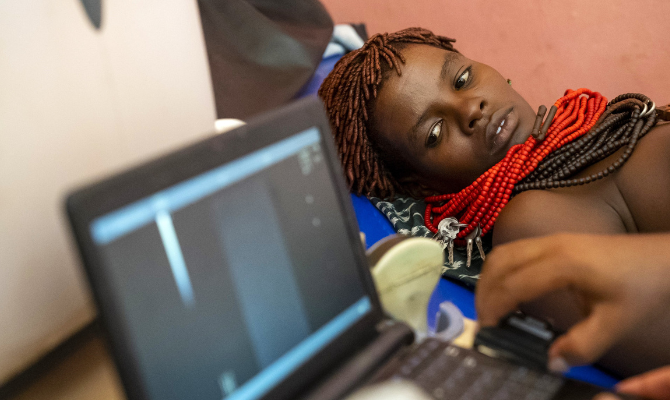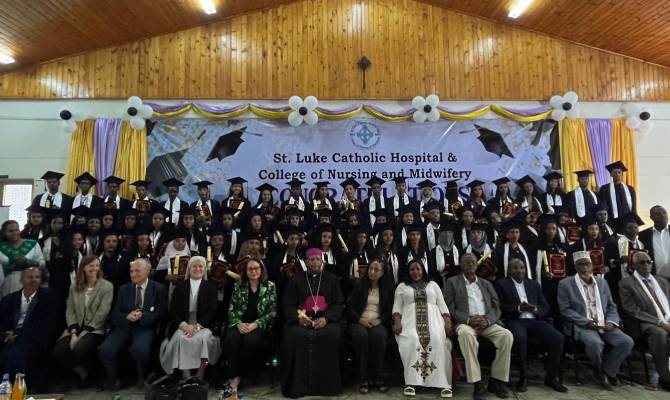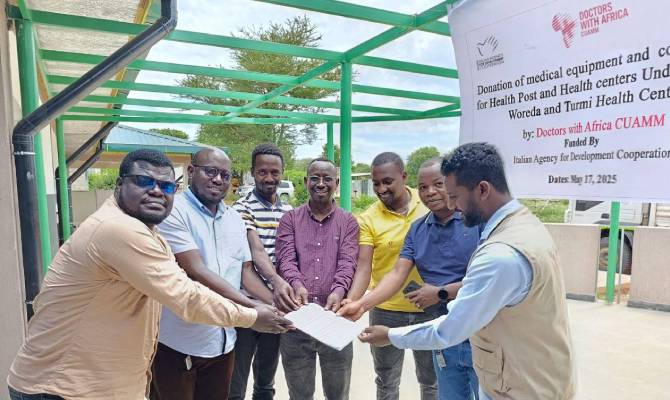“We can’t wait”. This is the message chosen by the World Health Organisation for the International Day against Hepatitis, which is celebrated on 28 July. An occasion to remember that a world free of hepatitis is possible, thanks to vaccination, screening and the use of drugs that act directly on the virus and allow its elimination in over 95% of cases.
Action is needed now. This is why Doctors with Africa CUAMM and the Veneto Region are supporting the “Protecting mothers and children in Wolisso and Jinka” programme to defeat hepatitis B in the South Omo area of Ethiopia.
«Since the begining of the program, – explains Eleni Hagos, paediatrician of Doctors with Africa CUAMM – we heve beeen trying to stregthen the screening of all pregnant women for HB virus as there used to be interuptions due to stockout of screening tools and other reasons. We already did an awareness rasing sessions in the different health centers and hospital around South Omo with another CUAMM project, “1000 days”. So the current HB project is stregthening the already started job. But of course, before the awareness raining, we did with the “1000 days” project there was a huge gap in doing screening for all pregnant mothers and adminstering vaccines for the new born. Crucial is the training component for health workers with which we were able to strengthen their awareness on the impact of HB virus infection on the newborn and babies who aquire the disease from their mother. With the training, we were also able aware them about newly strating programs and treatment options for mothers to decrease the transmission from mother to the child».
“Protecting mothers and children in Wolisso and Jinka”, promoted by the Veneto Region, is considered one of the pioneer projects in the southern region of Ethiopia, and probably at national level, specifically focusing on hepatitis B prevention: the Ethiopian Ministry of Health is launching new plans to prevent mother-to-child transmission of hepatitis B, syphilis and HIV.
«Among the patients we have cared for – Eleni continues – I remember a mother from the Hamer people who was referred to our hospital because she had given birth to preterm, low-weight twins. The referral came from one of the rural health centres. During the anamnesis, the woman told of having given birth, without any help, in the bushes near her home. She then went to the health facility because her children could not drink milk. As part of the screening against hepatitis B, we tested her and she tested positive. Although it had been 24 hours since her arrival, we gave her the hepatitis B vaccine to take advantage of the 72-hour window, since it is still possible to prevent transmission. We also injected her with a tetanus vaccine, since the birth had taken place on the ground with high risk. Thanks to our care, her babies started feeding and after a week they were discharged healthy, together with the mother».

The programme in brief
The health campaign “Protecting mothers and children in Wolisso and Jinka” is will end next December. The activities promoted consist of technical assistance by selected health personnel, coordinated by a local paediatrician, and “on-the-job” training of professionals for monitoring and data collection at the target health facilities in the South Omo area. The last training course on diagnosis and administration of the hepatitis B vaccine was attended by 42 people, 29 of whom passed the final test with over 80% marks.
In addition, awareness-raising activities, a supervision round at peripheral health units in the South Omo area, advocacy meetings and group discussions with Ethiopian authorities were carried out.
The interim results of the project
From January to June 2022, a total of 1,851 women benefited from their first antenatal visit in the health facilities located in the project’s intervention area – Jinka General Hospital, Koybe Primary Hospital, Gazer Primary Hospital and Turmi Health Centre – and a total of 2,841 women gave birth in the facilities with a record 2,875 newborns during the same period. During the same period, 1,161 women completed screening for hepatitis B and 49 were recorded as positive. At St. Luke’s Hospital, 312 mothers were screened for hepatitis B out of a total of 943 women who had their first antenatal visit and 12 tested positive.
Why hepatitis B is so wide-spread in the village of Turmi
«There are cultural practices in the village of Turmi, an area in South Omo – explains CUAMM project manager Kusse Koirita – that might contribute to the high incidence of hepatitis B and will have significant health implications. First of all, the “bull jumping” ceremony, in which women are hit with the same stick until they bleed, may predispose to blood contamination.
The traditional dance ‘’Evangadi’’, that passed through generations and which is performed at night, mostly to celebrate a good agricultural harvest or peace, where the girls may be exposed to unprotected sex could be another risk factor for the transmission of hepatitis B.
Home birth is also another factor which might contribute to the spread of hepatitis B: traditional birth attendants do not always observe hygiene rules and do not use gloves».
Awareness-raising and community health education, together with staff training, therefore become essential elements to protect mothers and children.






